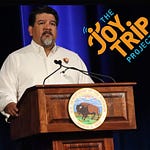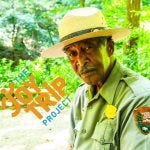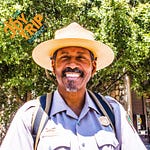Typically political action can take shape only when the general populous is rallied and motivated to take a stand. When it comes to building awareness for issues of environmental protection it’s especially difficult because those regions most in need of protecting are usually far away from the public eye. That’s why an organization called the International League of Conservation Photographers goes out into some of the most remote habitats in the world to document the current condition of delicate ecosystems at risk of destruction. "I've been working in the Sacred Headwaters region since about 2009, now," said ILCP photographer Paul Colangello. "And really briefly, the Sacred Headwaters is where three salmon bearing rivers all begin in one region of Northern British Columbia. So it's the Stakeen, the Skeena and the Nass. It's also home to one of the largest predator prey ecosystems in North America and it's the traditional territory of the Tahltan first nation." Paul Colangelo is one of several members of the ILCP working to protect the Sacred Headwaters of British Columbia. This region is among the largest temperate rainforests in North America. But over the past few years it's been flooded with proposed resource extraction projects. The biggest of which is Shell Oil's million acre, coalbed methane tenure right in the heart of the headwaters. Others include an open pit gold and copper mine and a mountain top removal coal mine. But the push back among the local population has been fierce. Approximately 1,500 members of the indigenous Tahltan nation have raised a lot of public awareness through blockades and sit-ins. They were actually able to stop Shell, the second largest corporation in the world. "Well somewhat stop them," Colangelo said. "They achieved a four year moratorium. But this will be lifted in december of 2012. And so we've been working in the area. That's when the ILCP got involved too and produced a RAVE." A RAVE is a Rapid Assessment Visual Expedition. A team of world-class photographers like Colangelo along with videographers and journalists go into endangered regions such as the Sacred Headwaters and work to tell its story. "We're trying to bring the Sacred Headwaters to people, because it's so remote," Colangelo said. "Most people even living in British Columbia have never even heard about it. So we're pretty much just trying to raise awareness. And we're hoping to get people's support for the protection of this area." Paul Colagello’s work along with eight other members of the ILCP culminated in a book written by National Geographic explorer Wade Davis called Sacred Headwaters Sacred Journey. I had a chance to talk to Colangello back in 2011 during the Banff Mountain Film Festival in Alberta Canada. There he shared the story behind his amazing photographs and the RAVE launched to protect this remote region at risk. JTP: Tell me a little bit about what a photographer does to help facilitate the preservation of these wild places. Colangelo: Well number one would be bringing places to people were they can't see it. You can read about a spot, but you're more likely to have a, you know a real connection and a reaction and waiting to save it if you actually see it. And then, I mean, after that, I mean, after you get to know and get, you know really deep into these issues and you get to know a region you can spot other potential problems and then make people aware of that even beyond photography. An example of that is Okanagan Mountain just this past December, the B.C. Government permitted just about the entire plateau for mining, exploration mining. And this mountain happens to be the home to the worlds largest lambing herd of stone sheep. And so I mean in 2001 recognizing the value of this herd the British Columbia government actually protected their winter habitat which is the slope of the mountain. And then they turned around and permitted the actual plateau for mining. So it's things like these,
Share this post

Paul Colangelo on the Sacred Headwaters – The Joy Trip Project
jamesedwardmills.substack.com













Paul Colangelo on the Sacred Headwaters – The Joy Trip Project